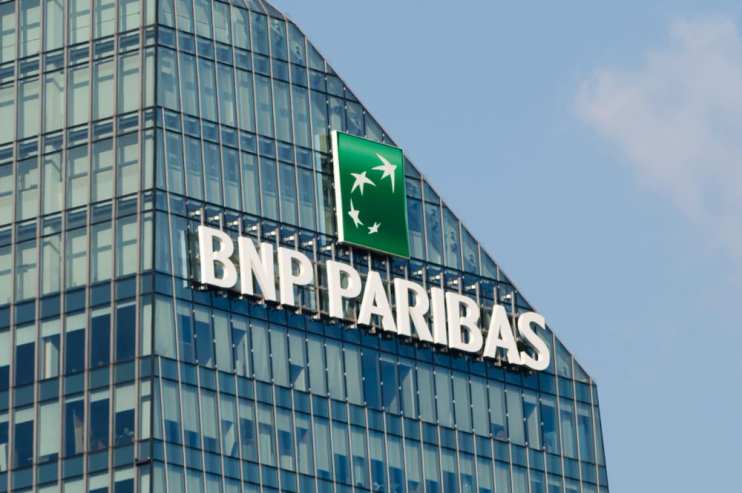BNP Paribas first-quarter revenue beats expectations as trading outperforms

BNP Paribas’s first-quarter sales beat market expectations as trading business at the eurozone’s biggest bank outperformed most of its peers, while it started to reap the benefits from rising interest rates.
BNP’s quarterly profit more than doubled in the first quarter from a year earlier, bolstered by gains from its much-anticipated sale of its U.S. retail division, allowing the bank to beef up its capital and liquidity buffers, at a time when European lenders strive to restore confidence in a sector battered by turmoil.
Revenue of just over €12bn ($13.20bn) in the period exceeded the company’s compiled consensus of €11.7bn as net interest income ticked higher in the usually difficult French retail market, the bank said on Wednesday.
Analysts at Deutsche Bank called BNP’s quarterly report “solid”.
“These results prove the resilience and diversification of BNP and should be received well by the market in our view,” they said before market open.
Royal Bank of Canada analysts said the results pointed to a strong performance at BNP’s trading arm and good cost control.
In securities trading, revenue edged down 1.8 per cent but still performed better than some peers including Deutsche Bank, which saw fixed-income trading decline by 17 per cent in the first quarter.
At U.S. bank Goldman Sachs, first-quarter sales from fixed income, currency and commodities (FICC) trading, usually a bright spot, plunged 17 per cent to $3.93bn, while equity trading revenue sank seven per cent to $3.02bn.
BNP’s FICC trading over the period was up nine per cent.
The sale of Bank of the West, which closed in February, yielded about €2.95bn ($3.25bn) in capital gains, the French lender said, helping BNP Paribas shore up its CET 1 ratio – a key measure of financial strength – to 13.6 per cent, up from 12.3 per cent in the previous quarter.
The first quarter net income, group share amounted to 4.44 billion euros, in line with expectations, and up from 1.84 billion a year earlier.
The group’s liquidity ratio was also up by 10 percentage points over the same period, to 139 per cent, while the cost of risk — money put aside for failing loans — stood lower than expected at €642m.
BNP’s first-quarter sales were up by 1.4 per cent from a year earlier to €12.03bn, driven by its investment bank and its commercial and retail branch.
The group’s global markets division, which bolstered BNP’s results in 2022, saw its sales edge down by 1.8 per cent, in spite of continued growth in FICC trading (fixed income, commodities, currencies).
BNP’s commercial and retail banking’s sales in France grew faster than expenses in the first quarter, driven by the rise in interest rates charged on mortgages following tighter monetary policy.
French banks usually lag behind their German and Italian peers because of stringent regulations that cap the rates at which lenders provide mortgages, which are mostly on a fixed rate basis.
BNP’s operating expenses also jumped 23 per cent in the first quarter from the previous quarter, notably propelled by a nearly €900m contribution to the Single Resolution Fund, an industry-funded safety net.
Restructuring costs worth €236m at BNP Paribas’ consumer finance division, where it is cutting 921 positions through voluntary departures and internal mobility, also weighed on expenses.
BNP Paribas said it was on track to deliver “strong growth” in 2023 distributable earnings per share.
It confirmed its 2025 targets, including a return on tangible equity (ROTE) of around 12 per cent by 2025 and an average annual growth in net income of more than nine per cent between 2022 and 2025.
Its €5bn share buyback programme will proceed as planned, it said. The first tranche of €2.5bn was approved in March, a sign analysts deemed reassuring as it took place shortly after the collapse of Credit Suisse.
Reuters – Mathieu Rosemain and Matthieu Protard
